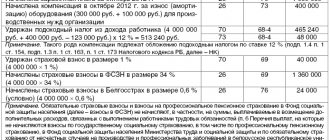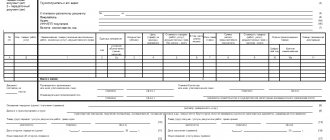Regulatory regulation of employment
The basics of the employment procedure are regulated by the following documents:
- Labor Code of the Russian Federation. Its chapters 10 and 11 describe in detail the process of concluding an employment contract, registering new employees, and also lists the necessary documents when applying for a job;
- Decree of the Government of the Russian Federation dated April 16, 2003 No. 225. This act approves the form of the work book - the main document for the employee’s personal records;
- Resolution of the Ministry of Labor of Russia dated October 10, 2003 No. 69. Here are instructions for filling out information about the job and the employee: dismissals, movements within the enterprise, awards.
Important! When registering an employee, HR officers should strictly comply with legal requirements. Violation of regulations may result in disciplinary action.
Employment of minors and students
Minors over 16 years of age can be hired. Teenagers over 14 years of age require written consent from their parents or guardian to work. Children under 14 years of age can be employed only in special cases prescribed in Article 63 of the Labor Code of the Russian Federation. These include:
- filming, advertising;
- circus performances;
- concerts.
For such employment, written consent is required not only from the parents, but also from the guardianship authorities. The latter set the schedule and the maximum possible amount of working time.
We recommend reading:
Features of hiring minors
All minors undergo a medical examination when applying for a job. This does not depend on the nature of the work.
For those under 18 years of age, preferential working conditions are provided:
- Shortened working day - maximum 4 hours a day at 14-15 years old, 5 at 16, 7 at 17-18.
- Only a five-day work week.
- Paid vacation of 31 days. It can be used until the expiration of the regulatory period of 6 months from the date of acceptance.
For minors it is prohibited:
- positions with full financial responsibility;
- professions with heavy mental stress and stressful situations;
- shift work;
- business trips;
- work at night, weekends, holidays;
- overtime;
- part-time work;
- replacing mandatory leave with monetary compensation;
- setting a probationary period.
The work schedule of minors or students should not interfere with their education. Therefore, they often take part-time jobs on the evening shift or take seasonal positions during the summer holidays.
Hiring procedure
If you want to make the process of hiring candidates easier and avoid mistakes, you should follow a step-by-step hiring algorithm. The general scheme looks like this:
- Collection and authentication of required candidate documents. Depending on the specifics of the vacancies, the list may differ slightly, but often the applicant is required to confirm the presence of the necessary education, work experience, availability of the necessary skills, or completion of courses.
- Familiarization of the future employee with the local documents of the company. At this stage, the candidate studies job descriptions, which may include recommendations and responsibilities, as well as work rules, a collective agreement, dress code or trade secret requirements. You must confirm your acquaintance with a signature.
- Drawing up and signing an employment contract. This stage is fundamental for both the employee and the employer. Often, the document has a standard form for all employees of an enterprise and is in fact an adhesion agreement; however, if the candidate is important and of particular value, he may be offered an individual option. Responsibilities, salary, and working hours must be specified.
- Coordination and issuance of employment orders. It must contain the basic terms of the employment contract, for example, the salary, the position of the new team member and his place of work, information about the probationary period.
- Creating a personal employee card. Data on the applicant is transferred from the HR department to the accounting department, where a personal account is opened, and data is also entered into the work time recording form. In addition, a personal file can be created.
- Making an entry about the device in the work book. After all of the above actions, a record of a new career step is made in the employee’s personal accounting document. This is carried out in accordance with the Resolution of the Ministry of Labor dated October 10, 2003 No. 69 by the personnel department or accounting department.
Attention should be paid to the details - changes to the work book must be made with a blue pen, and the information should not contain abbreviations and abbreviations.
Download for viewing and printing:
Decree of the Government of the Russian Federation of April 16, 2003 No. 225 “On work books”
Resolution of the Ministry of Labor of Russia dated October 10, 2003 No. 69 “On approval of the Instructions for filling out work books”
Article 65 of the Labor Code of the Russian Federation
Documents for registration
When applying for any job, the applicant must provide the following documents:
- passport or any other document that proves identity;
- certificate of state pension insurance - if an employee gets a job for the first time, such a certificate is issued to him;
- work book - if an employee gets a job for the first time, the document is issued to him at this enterprise;
- if an employee gets a part-time job, his work book remains at his main place of work;
- military registration documents - provided by those citizens who are subject to conscription for military service;
- educational documents – if the position requires special knowledge.
In some cases, additional documents may be required according to legal requirements. For example, persons who will work with dangerous and narcotic substances must also provide a medical report on their state of health. Persons entering the state or municipal service must write an application for employment and fill out a questionnaire - for all other specialists this requirement is not mandatory.
Of course, many enterprises ask you to write an application and fill out a questionnaire, but an employee’s refusal to do this cannot be grounds for refusal to hire. Documentation of hiring begins from the moment the future employee submits his documents to the HR department of the enterprise.
Back to contents
Familiarization with the regulatory acts of the enterprise
The law states that before signing an employment contract, an employee must be familiarized with the local regulations of the enterprise against signature: internal labor regulations, collective agreement, labor protection instructions, job descriptions, and so on - with all documents that establish the rules of labor discipline and are directly related to the employee.
His signature can be recorded in a special journal or on a familiarization sheet that is attached to each document. Regulatory acts can also be drawn up as an annex to the employment contract, thus, when signing the contract, the employee will also put a signature proving that he has been familiar with these documents.
Back to contents
Employment contract
It is necessary to distinguish between a civil contract and an employment contract (or employment contract). The structure of these two documents is approximately the same, but in the first case we are talking about specific work performed strictly within a certain time frame and for a certain fee, which may not coincide with the remuneration system adopted at the enterprise.
Both civil law and employment contracts are the basis for employment.
When signing a civil contract, no order is issued for the enterprise, and the employee is not covered by the guarantees enjoyed by employees who have signed an employment contract. The employer has the right to conclude civil contracts only in strictly defined situations, because if the necessary conditions for its conclusion are not met, it can be legally recognized as an employment contract.
The employment contract is drawn up in two copies, one remains with the employee, the other is kept with the employer. It must be concluded before the employee begins to perform his duties, but if the execution of the work contract has not taken place, and the employee has already been admitted to the workplace, the contract must be concluded within three days.
The employment contract contains the following sections:
- document details - name of the enterprise, name of the document, date of preparation, seal of the enterprise, and so on;
- general provisions - the start date of the contract and the date from which the employee goes to work, a mark on the probationary period, and so on;
- employee rights and obligations;
- rights and obligations of the employer;
- wages and social guarantees;
- schedule of working hours and rest time;
- insurance conditions;
- responsibility of the employee and employer;
- conditions for changing and terminating the employment contract;
- final provisions - the procedure for resolving disputes, and so on.
It must be remembered that an employment contract is the main document with the help of which labor relations are formalized, therefore all their details must be provided for and recorded: the presence of a probationary period, a mark on part-time work, a section on the trade secret of the enterprise, and so on.
Back to contents
The order of acceptance to work
After the employee has been familiarized with all the necessary local regulations, he has studied and signed the contract, the employment is formalized by the employer: on the basis of the signed employment contract, an order (or instruction) of the established form is issued.
The employee must be familiarized with the order within three days against signature; he can receive one copy of it, certified by a seal. The order cannot be issued later than the date of conclusion of the contract.
Back to contents
Preparation of personal cards and other personnel documents
The form of personal card N2 was approved by a resolution of the State Statistics Committee. The card itself is filled out by personnel department employees based on the documents that the employee provided, but he must sign the card under the date of the employment order.
The employee's personal file is also prepared by the HR department. Personal information is entered there: last name, first name, patronymic, position, date of birth, address, marital status, career path is recorded, all rewards and penalties are noted.
Also, hiring is documented in the work book: HR department employees make an entry about the date of hiring, details of the order and the position for which the new employee was hired.
Work books are kept at the enterprise and are not given to the employee until the day of dismissal. If necessary, he can be provided with an extract from the book or a copy of its individual sheets.
Back to contents
What documents are required for the device?
Article 65 of the Labor Code of the Russian Federation provides a clear list of papers required for applying for a job. This:
- passport (the law allows you to provide another identification document);
- work book (if the employee has already been employed, otherwise it is created directly upon hiring);
- military registration documents (military ID) for men and women liable for military service;
- documents confirming education and qualifications (higher education diploma, certificates, certificates of their validity);
- insurance certificate of compulsory pension insurance (if it does not exist, it is issued by the employer).
In addition to the above basic documents, in some cases the employer may require the following papers:
- certificate of absence (presence) of a criminal record (in the case when persons against whom criminal prosecution was carried out are not allowed to work);
- a certificate of the presence (or absence) of sanctions for the use of narcotic substances (if the vacancy does not imply the admission of persons with such a punishment before its expiration);
- medical certificates (in cases where the activity involves working in the catering industry or a minor is being placed);
- individual cases (driving license for a driver, letters of recommendation).
An employer cannot require papers from a potential employee, the provision of which is not stipulated by the legislation of the Russian Federation.
Attention! In accordance with the Federal Law “On Personal Data” dated July 27, 2006 No. 152, the personnel officer should obtain permission to process personal data with the candidate. Violation of the regime for storing and using this information is subject to civil, administrative and criminal penalties.
Employment decision
Selecting a suitable employee is the task of the personnel officer.
It is the HR department that, in order to select the best candidate, sends out advertisements, reviews application forms, and arranges interviews. The opinion of the head of the department where there is a vacant position is also taken into account. However, the final decision lies directly with the head of the enterprise . With his permission, the employment process begins and the employee begins his duties.
Important! If the applicant was admitted to work by a person who did not have the right to grant admission, and the employer subsequently refuses to recognize this relationship as an employment relationship and avoids concluding a contract, the employee still has the right to payment for the time worked and work performed.
Special cases during registration
Finding a new employee a job may have a number of nuances, even if it is a completely standard place of work. Thus, certain categories of citizens can exercise their right to benefits by submitting documents confirming their special status to the personnel department. This could be a disability, having a child or dependent, pregnancy or studying.
Attention! The applicant must independently take care of ensuring his rights. If the documents are not provided, the employee is considered to be hired under normal conditions, and the employer does not bear any responsibility for violating the standards for maintaining certain categories of workers.
Let's consider special cases of employment and certain types of personnel.
Remote employees
If an employee registers remotely, his papers are prepared electronically and certified using an electronic signature.
Notarized copies of the applicant's documents are sent by mail. The law establishes a voluntary procedure for making an entry about a remote work location in the work book, so sending it depends on the desire of the future employee.
Medical staff
The future health worker is required to provide a diploma of education and existing certificates, and if he is a specialist in a particular field, an appropriate license.
Attention should also be paid to the registration of personnel - the place of work and position must be indicated taking into account all the requirements established by the state. Otherwise, it will be difficult for the employee to prove the right to receive additional social benefits. Another feature of the employment of doctors and nurses is the requirement to undergo regular health examinations.
Device for an individual entrepreneur
In this case, nuances arise not on the part of the applicant, but on the part of the employer. Before starting to register personnel, an entrepreneur must undergo mandatory registration as an employer with the Pension Fund of Russia and the Social Insurance Fund. Based on the results of these procedures, the individual entrepreneur receives details to which contributions for the team will be transferred in the future.
Recruitment to financially responsible positions
Selection for financially responsible positions in enterprises is carried out much more carefully.
If an applicant wants to get a job as a warehouse or pharmacy manager, laboratory assistant or cashier, he will have to enter into a separate liability agreement with the employer and, in the event of losses due to his fault, compensate them to the company. There are several conditions for this:
- the person must be an adult;
- the harm occurred due to the fault of the person responsible;
- responsibilities directly link the work to certain values, and the position itself is included in the list of the Ministry of Labor Resolution No. 85 of December 31, 2002.
Download for viewing and printing:
Federal Law “On Personal Data” dated July 27, 2006 No. 152
Resolution of the Ministry of Labor of the Russian Federation of December 31, 2002 N 85
Methods for registering an employee
In accordance with the Labor Code of the Russian Federation, hiring an employee for a position can be carried out in several ways. The most common of them is the execution of an employment contract. The market for outsourcing and outstaffing is gradually developing. In some regions, informal employment is popular.
The employer is required to register its employees.
Employment contract
This is a document that sets out the rights and obligations of the employee and the employer. It must contain the following information:
- place of work (enterprise, structural unit, branch);
- labor function indicating the responsibilities and qualifications of the employee;
- start and end date (in the case of a fixed-term contract) of work;
- terms of payment, including the amount of allowances, bonuses, incentives;
- routine, working hours and breaks;
- availability of compensation for overtime, heavy or hazardous work;
- social insurance conditions;
- other conditions provided for by law, for example, the obligation not to disclose trade secrets.
Under the contract, the employee is obliged to fulfill clearly defined duties in accordance with the internal schedule of the enterprise, and the employer is obliged to provide appropriate working conditions, social guarantees and benefits, as well as pay wages.
The contract can be indefinite or fixed-term. The latter is for seasonal work and in cases where an employee is required for a temporary position. The maximum term of a fixed-term contract is 5 years. If no end date is specified, the agreement is considered open-ended.
A contract may be declared invalid if it puts the worker at a disadvantage and contradicts the Labor Code of the Russian Federation.
https://youtu.be/—551vDGkmA
Civil-labor contract
A civil law agreement (CLA) is concluded for the performance of one-time work or the provision of a service. The parties do not enter into an employment relationship. A DGPC is concluded, for example, when an employer needs a logo or website design. Its differences from the standard contract:
- the work is performed once within a predetermined time frame;
- the employer cannot control the employee’s actions, his schedule, etc. - only evaluate intermediate results;
- the employer must not provide the employee with a workplace, materials, etc.;
- the terms of payment, the amount of the advance and the full price of the service are established by agreement of the parties and are not regulated by the Labor Code of the Russian Federation;
- the employee is not provided with labor guarantees and benefits;
- the employer does not pay a contribution to the Social Insurance Fund (except in cases where there is a danger of a work-related injury);
- for employment you do not need documents, except for the contract itself, no entry is made in the work book;
- the employee may involve third parties in executing the order.
A civil contract often turns out to be more beneficial for both the employer and the employee. But it is only suitable for specific situations where the parties do not necessarily have to enter into an employment relationship. A DGPH can be reclassified into an employment contract by a court decision following a claim from the employee himself or the tax authorities.
Civil contract.
Distant work
People who have entered into a remote work agreement perform their duties at home using their own or employer-issued tools and tools. At the same time, they are considered full-time employees of the enterprise: they need to pay taxes, send reports to the Pension Fund, etc. They have the same rights and responsibilities: they can go on vacation, take sick leave, receive social benefits and guarantees upon dismissal.
Registration of a remote worker for a position follows a standard procedure. The contract additionally specifies the place where he will operate (mainly his home address).
Because remote workers are subject to workplace safety laws, a commission inspection of a home or apartment may sometimes be necessary before employment.
Outsourcing outstaffing or agency labor
Outsourcing is the transfer of employee responsibilities to another company. Often the second company performs support tasks such as maintenance, accounting, programming.
The following types of outsourcing are distinguished:
- Production outsourcing. Part of the production is transferred to an external organization. An example of such outsourcing is advertising, where a hired company produces posters, signs, etc.
- Business process outsourcing. A third party company performs management functions - for example, accounting, planning, market analysis.
- IT outsourcing. The hired company deals with information technology: develops software, configures computers, and carries out maintenance.
By hiring a third-party firm to perform non-core, highly specialized tasks, the company eliminates the need to find individual employees. This is beneficial when you need to save time and get quick results.
Benefits of outsourcing:
- Saving money. The company does not need to expand its staff and infrastructure to hire individual employees, which reduces costs. In addition, outsourcing helps optimize tax costs.
- The ability to concentrate on the main task. By outsourcing advertising, maintenance, billing, and other non-core tasks to an outsourced company, the company invests more resources in core production.
- Improving the quality of work. By engaging an outsourcer, the company entrusts the work to an already established group of specialists. This eliminates the inconvenience and costs associated with trial periods, optimization of work processes, etc.
The downside of outsourcing is the partial loss of control over business processes. In addition, the legislative framework for this type of labor relationship in Russia is still underdeveloped, so there is a risk of fraud and poor quality work.
Outstaffing is the transfer of an employee to the staff of an outstaffing company. At the same time, he retains his old rights and obligations, but works for a new employer. This helps reduce labor taxes on the maintenance of the worker and get rid of the inconvenience associated with accounting, payroll, etc.
https://youtu.be/pImpexwOQmE
Unofficial employment
Informal employment does not imply legal guarantees from the employer and employee. This form of hiring is often chosen by beginning individual entrepreneurs and small business owners who cannot afford to pay taxes and hire a separate person to prepare reports.
Of the workers, unofficial employment is preferred by those who have problems with official employment: pensioners, disabled people, people with a criminal record, women on maternity leave. The lack of official income helps to save on paying alimony, taxes and other fees.
Informal employment entails risks. The employer may refuse to pay wages, take away the right to vacation or sick leave, impose unspecified fines and deductions on the employee, or fire him at any time. Since there is no official employment relationship, it will be difficult to protect yourself in case of conflicts.
The employer bears legal responsibility for workers without official registration. He can be fined up to 300 thousand rubles, forced to repay unpaid taxes, or sent to prison for up to 2 years. As a punishment, it is possible to suspend the activities of a business or individual entrepreneur for an indefinite period.









